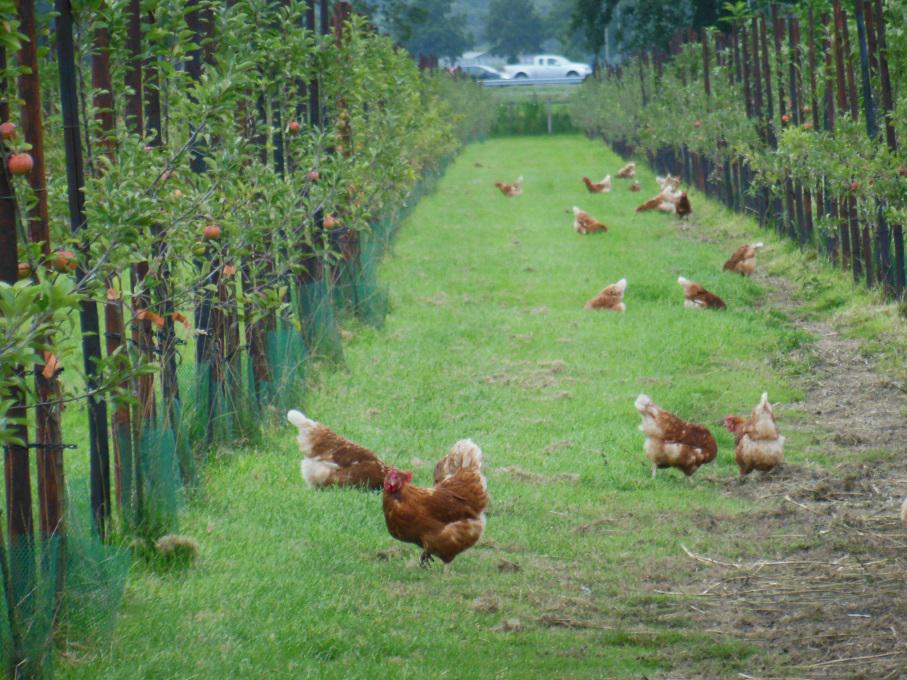
L'agroforesterie pour l'élevage de volaille aux Pays Bas
Description du système
Aux Pays Bas, les parcours d’élevage de volaille recouvrent environ 2 300 ha. Mais les agriculteurs ne se sont intéressés aux parcours agroforestiers que depuis 1999. Dans le réseau d'exploitants agricoles « Des arbres pour les poulets » (« Tree for chickens ») seulement quatre éleveurs ont planté des arbres fruitiers. Indépendamment de ce projet, d’autres agriculteurs en agriculture biologique ont planté dans leurs parcours des noyers, des fruitiers, des sapins de Noël mais aussi des saules.
Première rencontre entre acteurs
La première rencontre rassemblant neuf acteurs s'est tenue le 9 juillet 2014 au sein d'une exploitation produisant des poulets de chairs sous cerisiers à Terschuur (Pays Bas). La seconde s'est déroulée le 18 septembre 2014 dans deux plantations de noyers près de Winterswijk. Les points positifs de ces systèmes agroforestiers sont le bien-être animal, l'état sanitaire de la volaille, la valorisation du paysage et la production de bois et de noix. Les aspects négatifs sont l'augmentation des frais de gestion et d’exploitation ainsi que les problèmes liés à la mécanisation. L'élaboration de combinaison profitable est un potentiel sujet de recherche.
Pour plus d'information sur les activités de ce groupe, contacter Monique Bestman de l’Institut Louis Bolk aux Pays Bas (M.Bestman@LOUISBOLK.NL).
Télécharger le premier rapport du groupe de travail
Télécharger le rapport initial du protocole R&D
Télécharger la description du système
An update on agroforestry research with free-range egg production in the Netherlands was produced in November 2015.
Lessons learnt
In October 2017, Monique Bestman and colleagues at the Louis Bolk Institute in the Netherlands summarised the lessons learnt from their research on using agroforestry for organic/free-range egg production in the Netherlands. They examined and relate their experience of working with several examples of agroforestry: egg production with apples, biomass willows, Miscanthus, a tree nursery, and walnut trees. They also examined broiler production with cherry trees. The combinations have advantages for animal welfare and animal health. However there are high investments costs and there is often a lack of training or expertise in how to manage the trees. The lack of tree knowledge can be overcome by poultry producers working with a tree specialist, but the arrangement needs to be carefully considered to prevent conflicting interests.